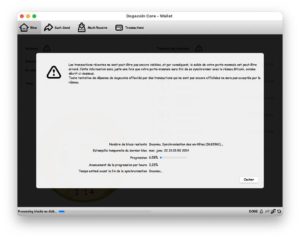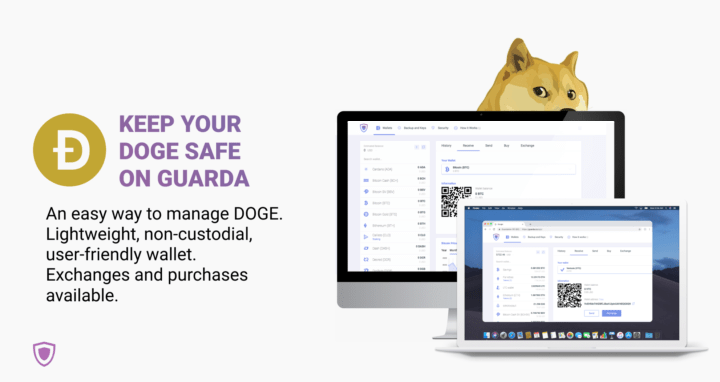
← (internal/modules/run_main. ←[90m at Function.Module._resolveFilename (internal/modules/cjs/loader.js:902:15)←[39m Npm ERR! C:\Users\xxxxx\AppData\Roaming\npm-cache_logs\T21_07_50_089Z-debug.logĪnd when I just go to a command prompt and try mbexport I get.Įrror: Cannot find module 'C:\Users\xxxxx\AppData\Roaming\npm\node_modules\mbexport\build\mbexport' Npm ERR! A complete log of this run can be found in: Npm ERR! with -force to overwrite files recklessly. Npm ERR! Remove the existing file and try again, or run npm Npm ERR! File exists: C:\Users\xxxxx\AppData\Roaming\npm\mbexport.cmd Npm ERR! EEXIST: file already exists, cmd shim 'C:\Users\xxxxxs\AppData\Roaming\npm\node_modules\mbexport\build\mbexport' -> 'C:\Users\xxxxx\AppData\Roaming\npm\mbexport.cmd'

Npm ERR! dest C:\Users\xxxxx\AppData\Roaming\npm\mbexport.cmd

Npm ERR! path C:\Users\xxxxx\AppData\Roaming\npm\node_modules\mbexport\build\mbexport
#Dogecoin core import wallet install#
But when I do "npm install -g mbexport" I get the following. For example, it’s common for people to use a hardware wallet or other cold-wallet to store larger amounts of coins, but use a custodial or non-custodial hot wallet solution for daily purchases.I'm an idiot. Remember, too, that you can always use more than one wallet for your Dogecoin! With virtually zero fees, transferring between wallets is so cheap that many people have a variety of wallets for different purposes. We swept your paper wallet to the Dogecoin address you specified, this is its transaction hash: You can view the transaction here. Having said this, non-custodial hot wallets, such as smartphone wallets, are regarded by most people as being safe enough to be used for day-to-day expenses and for holding small amounts of Dogecoin. Dogechain wallet gives you the easiest way to secure your Dogecoin. Many people think that cold wallets are inherently safer than hot wallets, and are typically preferred by people who intend to ‘hodl’ their Dogecoin long-term, and want to keep it especially safe. Hardware wallets and paper wallets are examples of cold wallets. A hot wallet can be custodial or non-custodial.Ī cold wallet is a wallet that is not connected to the internet. Examples of hot wallets are Dogecoin Core, browser extension wallets such as MetaMask and the like, and smartphone wallets. In general, a hot wallet is a wallet that is connected to the internet. Having said this, it’s very important that people who use non-custodial wallets don’t lose their private keys or seed phrases! This can be avoided by backing-up your non-custodial wallet, and is why you should never share your seed phrase or private key with anyone you do not trust. This is why many people prefer non-custodial wallets, and is where the popular saying ‘not your keys, not your coins’ comes from.

in this video you can see how install setup of Dogecoin core wallet. Ive constructed a beginner-friendly tutorial for those wanting to try Dogecoin but are confused by the concept of 'bootstrapping a wallet'. Instead of the keys to your wallet being stored by a centralised third-party, non-custodial wallets store your private keys locally. Dogecoin Wallet can be quite daunting for many who have yet to dip a toe into the world of cryptocurrencies. Many smartphone wallets, Dogecoin Core, and hardware wallets are examples of non-custodial wallets.

Examples of custodial wallets include web-based exchange wallets.Īdvocates of custodial wallets appeal to the convenience of these types of wallets, and are typically favoured by people who trade Dogecoin more frequently.Ī non-custodial wallet, on the other hand, is a wallet where you hold and control the private key to your Dogecoin. In this case, the term “custodial" means that a trusted entity other than yourself holds custody of the coins on your behalf and manages the private key. Additionally, wallets can be ‘hot’ or ‘cold’, depending on whether they are connected to the internet or not.Ĭustodial Wallets and Non-Custodial WalletsĪ custodial wallet is a wallet to which you do not hold the private key. Generally speaking, there are two overarching categories of wallets: ‘custodial’ and ’non-custodial’, depending on whether you are the sole holder of your wallet’s private key. There are many ways you can get a wallet, and the best choice of wallet for you is dependent upon the purpose for which you intend to use your Dogecoin. A wallet is necessary for people wanting to trade, use, or ‘hodl’ Dogecoin.


 0 kommentar(er)
0 kommentar(er)
